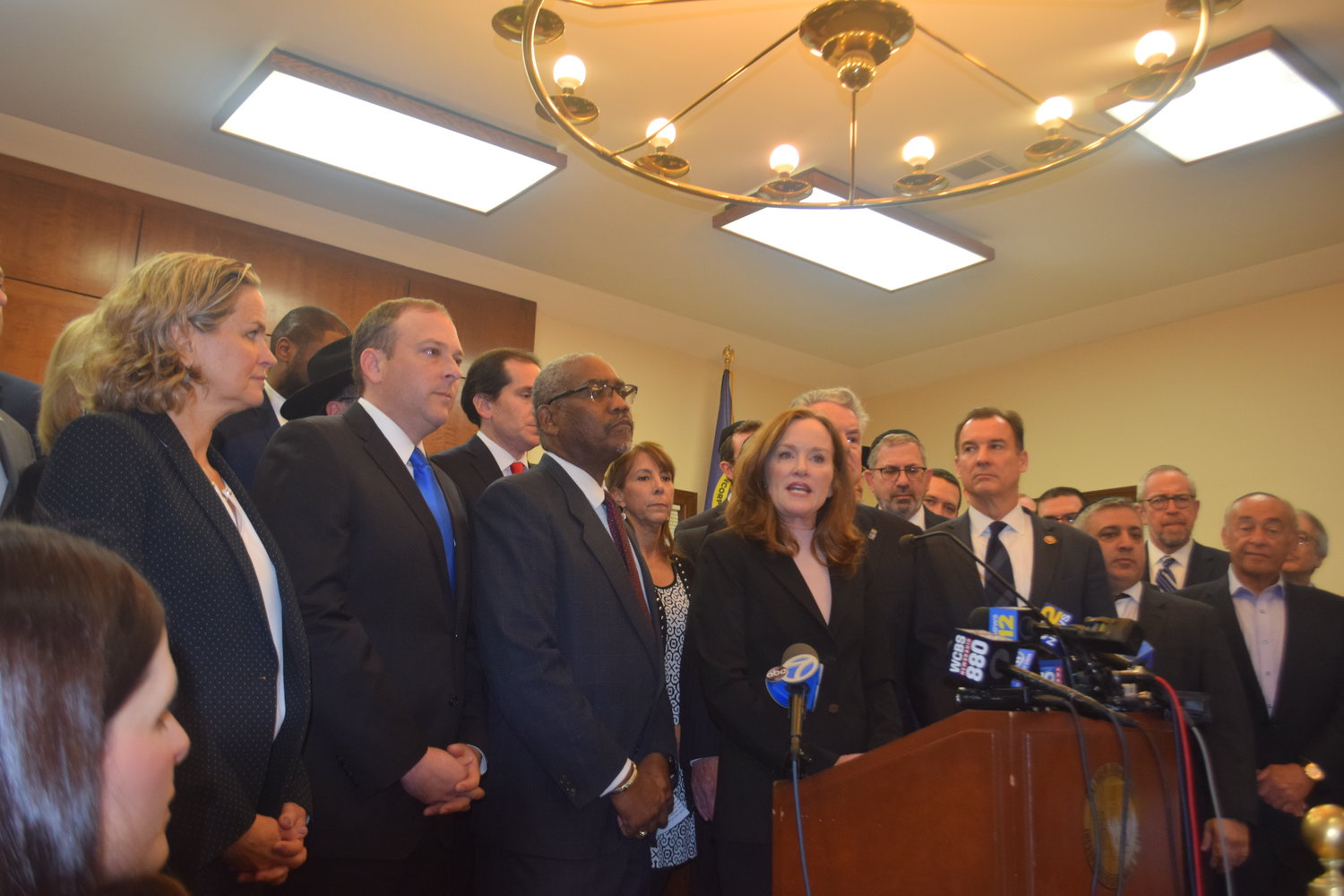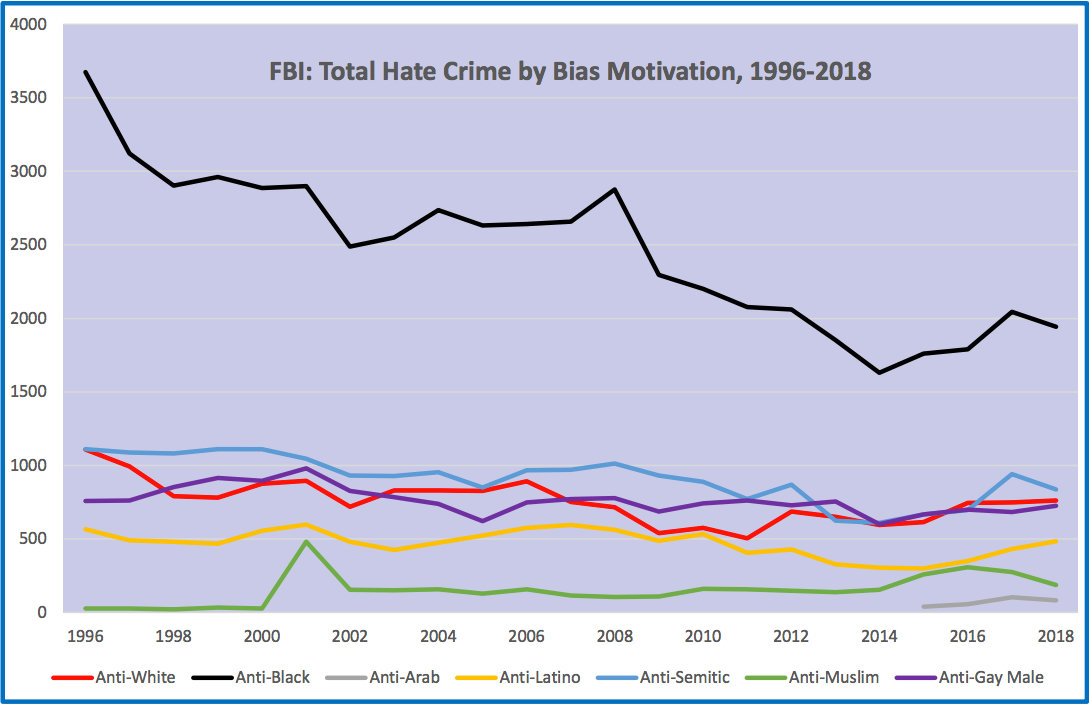Community members, officials speak out after anti-Semitic attacks

A surge in anti-Semitic violence in the tri-state area over the past month, including a shooting at a Jersey City kosher market early in December that left six people dead, and the machete stabbing of five Hasidic Jews at a Hanukkah celebration in Monsey, N.Y., has instilled fear in the Valley Stream Jewish community and inspired a flurry of proposals by local elected officials seeking to end such attacks.
Rabbi Steven Graber, of Temple Hillel in South Valley Stream, noted that with a large Jewish population in the metropolitan area, many Jews are bound not just by faith, but also through personal connections, creating a sense that such violence could occur anywhere, and affect any one of their family members or friends.
Graber’s daughter-in-law, he said, and her father used to pray at the Congregation of Netzach Yisroel in Monsey. Its members, who had gathered at its rabbi’s home next door, were the victims of the Dec. 28 stabbing, and Graber said he grew up roughly 30 blocks from the site of the Dec. 10 shooting, in the Greenville section of Jersey City.
“There is the personal fear that people are experiencing that if it can happen there, it can happen in another synagogue,” he said. “That’s scary.”
Graber said he believed the country has been in a heightened emotional state for some time — at least since the Sept. 11 terrorist attacks — and that bad actors have been trying to exploit divisions in society. He noted that it was not just members of the Jewish community who were at risk, but also those of other major religious groups.
“There are short-term and long-term answers,” he said of the surge in violence. “The long-term, and most important, is healing society through education and communication.”
In the short term, Graber said, state and federal funding is needed to bolster security at houses of worship and religious centers. He said he was thankful for the proposals by lawmakers, and that law enforcement officials have been responsive to the Jewish community’s concerns, providing frequent updates and addressing the violence. “It was great to see that all the people who have been elected have been seriously involved, they’re up on it, they’re doing their job,” Graber said. “They’ve also been having their counterintelligence and law enforcement people talking to us and letting us know that they’re talking to each other as well.”
Arlene Lynn, a longtime Valley Stream resident and member of the Temple Gates of Zion congregation, said she had attended a demonstration against anti-Semitic attacks on Sunday in lower Manhattan that spilled across the Brooklyn Bridge. According to major news outlets, tens of thousands of people attended the march.
“It was amazing to be a part of,” Lynn said. “Hopefully it sends a message to stop the violence.”
Like Graber, she said the most recent attacks highlighted the unsettling fact that violence against Jews could occur anywhere. “People say it can’t happen in my community, but it can,” Lynn said.
She placed part of the blame on rhetoric coming from President Trump, which, she said, gives people permission to express their hate. “I believe he appeals to white supremacists,” she said, “and to weak-minded people who take what he says to heart.”
She also blamed a lack of programming to address mental health in the country.
Grafton Thomas, the suspect in the Monsey stabbing, had a long history of mental illness, according to major news outlets.
Lawmakers, officials denounce the violence
On Jan. 3, federal, state, county and village representatives along with rabbinical leaders and many others, crowded Cedarhurst Village Hall to denounce the recent attacks, and offered short-term solutions to stem the violence.
Nassau County Police Commissioner Patrick Ryder said hate crimes in Nassau had doubled in the past year, and according to preliminary findings by the Center for the Study of Hate and Extremism at California State University, San Bernardino, in 2019 hate crimes in the country’s five largest cities on average rose around 14 percent over the previous year, reaching a decade high in some places.
White supremacist-motivated homicides, the same report said, appeared to be on the rise, with 26 reported in 2019, more than the combined sum of all extremist homicides in 2018.
U.S. Rep. Kathleen Rice pledged to increase funding for the Nonprofit Security Grant Program, which helps organizations secure their facilities against a potential terrorist attack. She said that over the past year Jewish cultural centers in the district had received $1.7 million through the program.
“The vicious attack in Monsey, and the alarming spike in anti-Semitic violence we have seen over the past several weeks, has put all of us on edge,” Rice said. “I gathered federal, local, and state officials today to stand in solidarity with the Jewish community and provide reassurance that we are working at every level of government to stop these bigoted acts of violence.”
She also proposed increased funding for state and local hate crimes investigations, more funding for the Department of Homeland Security Office of Targeted Violence and Terrorism Prevention and voiced support for the Never Again Education Act, a federal bill to expand Holocaust education in public schools.
Joining her was State Sen. Todd Kaminsky, who also voiced support for increased security funding.
“As a community, it’s critical that with one collective voice we strongly condemn the abhorrent rise of anti-Semitic attacks occurring throughout our state,” said Kaminsky, who is Jewish. “We must remain united in our resolve to protect our communities and offer real solutions to this scourge of violence by enacting tougher hate crime legislation and providing more security funding.”
Jeffrey Bessen contributed to this story.

 49.0°,
Fog/Mist
49.0°,
Fog/Mist 




